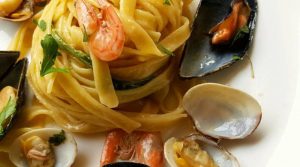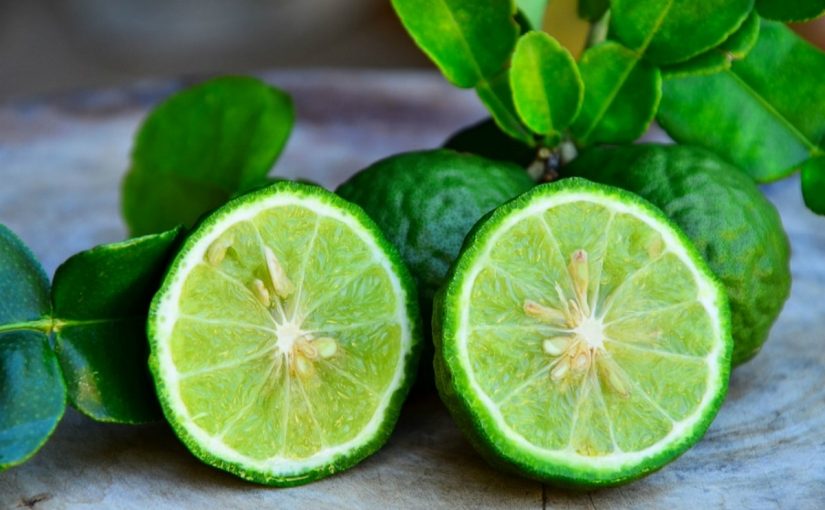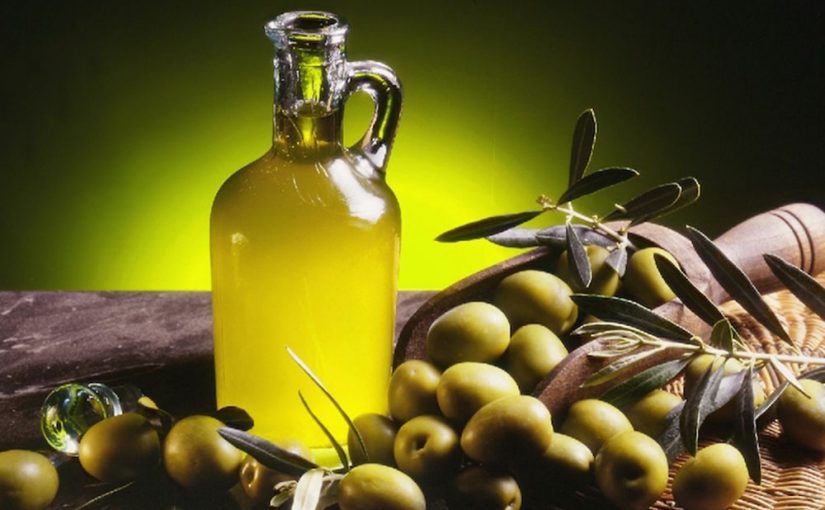4.4.2018
Bergamot, inside Calabrian Gastronomy, is contantly present.
JUICE
We can mention Bergamot juice based drink. This a refreshing, invigorating and extremely refreshing drink, to be consumed for breakfast, so energizing your awakening or drinking during the day, and to win your thirst for a long time. Bergamot juice can also be added to aloe, this way all the properties of bergamot and aloe vera gel and arborescensis, can give raise to a natural and health drinks. This variant will be pleasantly surprising, refreshing, relaxing for the stomach and the digestive system.

JAM
All the properties of bergamot are, further, present in the bergamot jam. Good on bread, special on cheeses. The variant of bergamot and ginger jam can be used to garnish cheese, meat and fish.
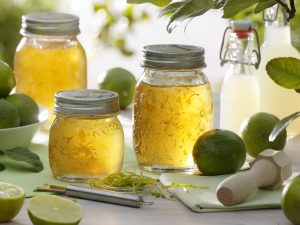
OLIVE OIL
You can find, inside Calabrian cuisine, the olive oil flavored with bergamot, obtained only by infusion in organic or non organic olive oil and left to mature for at least a month to absorb all the aromas, aromas and fragrance of bergamot.
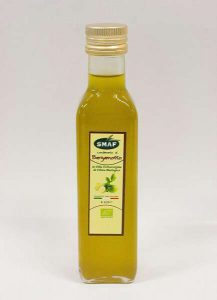 Olive oil flavoured with Bergamot is a wonderful combination for shellfish and fish, and contrasts the wild smell of meat such as wild boar, hare or pheasant. it can tried with scallops, pork and chicken.
Olive oil flavoured with Bergamot is a wonderful combination for shellfish and fish, and contrasts the wild smell of meat such as wild boar, hare or pheasant. it can tried with scallops, pork and chicken.
The oil is used as a complement to salads, as well as to enrich sauces and “salmorigli”, excellent also to flavor pasta and filled pasta.
PEELINGS
The whole dried Bergamot peelings are handmade, for all the preparations where the use of bergamot peel is expected, especially for the preparation of herbal teas and infusions, of liqueurs and beers. Another possible use of peelings is to aromatize in a simple and natural way Calabrian desserts, or to enhance the aroma of all the sweet preparations.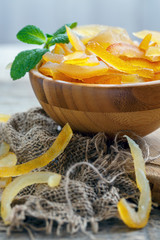
For example, the preparation of Tea with Bergamot peelings requests pour boiling water in a cup and adding two teaspoons, mix and cover the cup to avoid dispersion of the most volatile aromas. Leaving to infuse for a few minutes, you can obtain a typical Calabrian and Mediteranea drink, advisable to consume without sugar or with honey.
CANDIES

It is possible to try Calabrian bergamot candies. In strips, in whole cups and as “bergamottini” (small fruits). Perfect as appetizers, as desserts and ingredients for Calabrian dishes, for desserts or for local ice cream.
SYRUP
Bergamot syrups are obtained only from Original Calabrian bergamot. This syrup can be diluted for authentic Mediterannean refreshing drinks, to sweeten teas or herbal teas or to produce delicious preserves, giving a unique aroma, to be used to garnish local sweets, ice cream or smoothies, or to garnish fish dishes.
For example, it is usual the recipe for baked salmon with bergamot, a simple and quick second course to prepare. The syrup can be added on slices or on salmon fillet.
HONEY
Calabrian Honey can be flavored with fine and enveloping bergamot. The use of this fragrant honey is very varied, it is mainly used to sweeten, stuff and aromatize sweets and dishes, but it goes very well with cured meats and fresh and aged cheeses.
Honey since ancient times was used as a remedy for almost all health problems. Various studies have shown tha Bergamot honey:
- It has a decongestant and sedative action against coughing.
- It offers numerous benefits for blood and heart, in fact it reduces cholesterol, glycemia and triglycerides.
- It is a powerful natural antibiotic and anti-fungal.
- It regulates metabolism and helps to control body weight.
- It offers numerous benefits for the stomach and intestines, in fact it is curative for inflammation and infections of the gastrointestinal tract.
- Rich in vitamins, minerals and antioxidants.
- It has a diuretic action
- Rich in benefits for the skin and especially for acne.
It is a genuine honey, without preservatives, harvested from the beehive as ancient tradition, nourishing, not very sweet aromatic and excellent for breakfast or fresh cheeses.

LIQUEUR
The bergamot liqueur, often called bergamino, is a Calabrian liqueur typical of the province of Reggio Calabria; it is unique and almost impossible to find. The liqueur of bergamot is obtained by macerating the zest in alcohol for a few days. The infusion is then filtered and mixed with a syrup obtained with water and sugar. It is preferable to consume it fresh to better appreciate its aroma, as after meal or for the preparation of desserts and ice creams. It is eaten iced to better taste its aroma.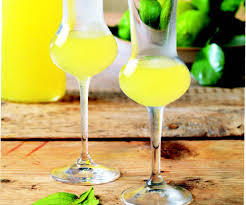
A special variant is Bergamot Grappa, it is distilled in a traditional way. The particularity is the union between the intense aromas of grappa and the taste of bergamot, thus giving those who taste it a pleasant sensation of freshness. It is advisable to serve it in a frozen glass at the end of meals.
CHOCOLATE
In Calabria you can taste a delicious specialty of craftsmanship, handcrafted, to be enjoyed, offered or given away all year, for sweet moments of pleasure: chocolate flavoured with bergamot. The chocolate, mainly bars, is made with 100% natural ingredients, like the oils extracted directly from the Bergamot. Further, inside the bars of extra dark chocolate (61% average of pure chocolate) you can find the flavors and aromas of Bergamot and rediscover its versatility.
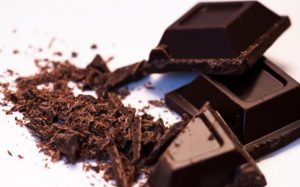
FIGS
Figs at the Bergamot of Reggio Calabria are a tyical mixture. Ingredients are baked figs and molasses of figs with bergamot. These delicious figs are dipped in a delicious fig molasses flavored with a citrus unique in the world.
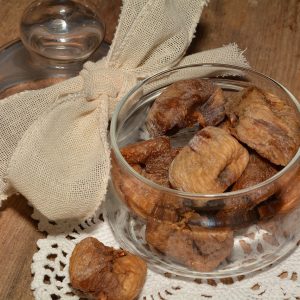
PASTA
“La Fileja” is a typical Calabrese pasta format. The pasta fileja is produced in a traditional way with the best grain, mixed with cold water and dried slowly at a low temperature. Ingredients: Durum wheat semolina, water, natural essence of bergamot. It is excellent for the preparation of first courses based on fish.
